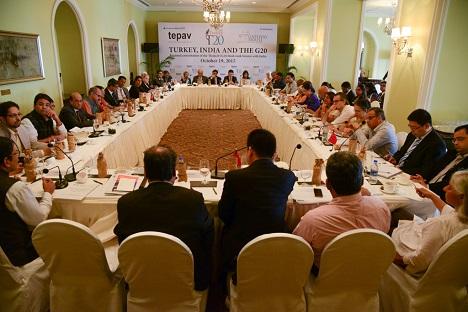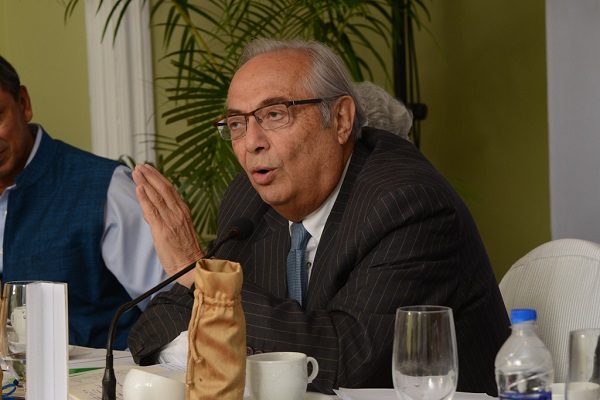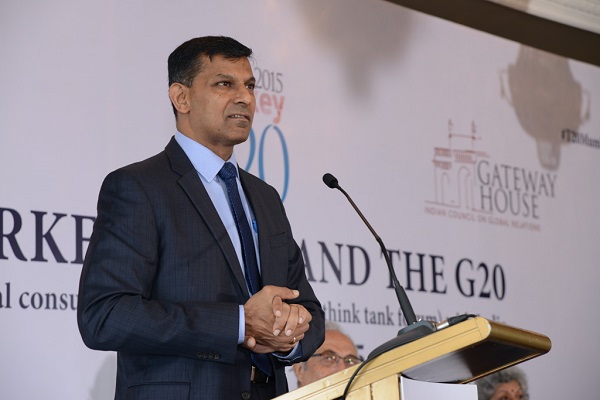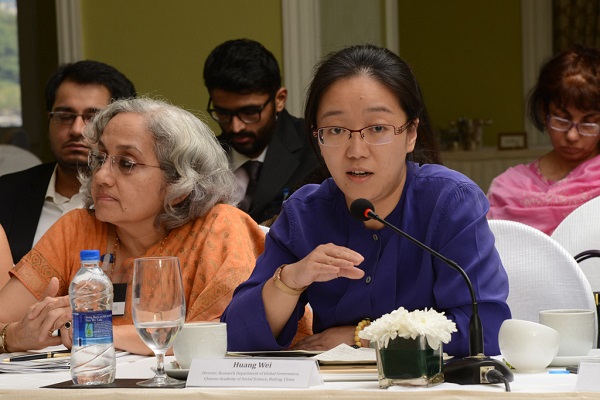Global Governance
Your Present Location: PROGRAMS> Global GovernanceBRICS should coordinate better in G20

"Turkey, India and the G20" meeting in Mumbai.
The first ‘Think 20’ (T20) regional meeting titled "Turkey, India and the G20" organized by a think tank, Gateway House, in collaboration with the Economic Policy Research Foundation of Turkey (TEPAV), opened a new chapter in India`s participation in the G20.
The G20 is a multilateral platform for global economic and financial decision-making that has shaped a model for global cooperation to promote economic recovery and growth. While meetings of G20 Finance Ministers and Central Bank Governors are an important mechanism to determine ways to strengthen the global economy and reform international financial institutions, the T20 is a newer engagement group which serves as an “ideas bank” for the G20, bringing together experts, diplomats and think-tanks.
The discussions in Mumbai dealt with issues from multilateral institutions to sustainable growth and infrastructure investments, as well as inclusive business models, trade technology and skills development. Observations and recommendations from the T20 were sent to the Turkish G20 Presidency to be considered at the G20 summit on 15-16 November in Antalya.
Growth agenda
Ambassador Bozkurt Aran, former Permanent Representative of Turkey to the WTO and now Director of the Center for Multilateral Trade Studies at TEPAV, highlighted the main goals and priorities of Turkey´s G20 Presidency. In an interview with RIR he said these include helping to enable inclusive and robust global growth through collective action, addressing issues related to low-income developing countries (LIDCs) that should be heard by the other counties and giving Small and Medium Sized Enterprises (SMEs) a bigger platform in economic growth.

Bozkurt Aran.
Raghuram Rajan, Governor of the Reserve Bank of India (RBI) said in his keynote address that emerging economies should develop their own capacity to provide new ideas to the global financial system, and “hold the pen” that will write a more inclusive agenda. Speaking of the global financial crisis, Rajan said it was shifting from place to place to emerge as what he called “a global game of musical crisis.” He stressed the need for sustainable rather than just rapid growth and importance of governments and multilateral institution getting involved in infrastructure financing.
A discussion on emerging markets and the impact of geopolitics on business had Mohandas Pai, Chairman of Manipal Global Education and former CFO, Infosys Technologies, saying that emerging markets were the drivers of change and soon would become the world`s dominant economic powers, through innovation. Rakesh Jhunjhunwala, a market analyst, spoke of the importance of China and India and emphasized that emerging markets should be given their due place in global platforms. Seshadri Chari, Executive Director, Forum for Strategic & Security Studies, pointed out problems of inequality of wealth and human resources and the importance of sustainable growth.
Geopolitical concerns
According to Akshay Mathur, Head of Research at Gateway House, there are many issues, from pluri-lateral agreements like the Transatlantic Trade and Investment Partnership (TTIP), Trade in Services Agreement (TISA) and Trans-Pacific Partnership (TPP) that are of large concern for India and other emerging markets.
“The geopolitical issues have to do with terrorism, migration, national security. Some are related to the turmoil in Syria and Iraq. There is turmoil in parts of Africa, India, Afghanistan, Pakistan. These issues are not addressed at G20, but we need to consider the impact of geopolitics on business and the economic environment,” Mathur said.

Raghuram Rajan.
Sanctions against Russia are another example of issues beyond formal discussions. “Issues like sanctions do not really get discussed on G20 platform but again it is economic sanctions, it hurts the global economic architecture,” he said.
Aran said, since Russia had become a major stakeholder in the Syrian crisis, it has to be taken into account at G20 summit. “Those things would be discussed, I suppose, and if the leaders would not come with some kind of understanding, the crisis will continue,” Aran said, adding that in times of crisis, G20 leaders’ meetings become more important.
When asked about Russia`s participation in G20 this year, considering tensions between Russia and Turkey over Syria, John Hartley, CEO of Future Directions, a not-for-profit research institute in Australia, said its participation is essential as Russia is a significant country.
“The problem is that we tend to take a very short view on many issues. G20 policies prepare us very much for the future and the future is much greater that any small issue that is occurring right now,” he added.
BRICS at G20
Experts emphasized the need for greater cooperation between emerging countries.
“In G20 we have all five BRICS countries that have more common interests compared to other countries. Russia and China, for example, are in the same situation because Russia is facing a lot of pressure from Western countries, as much as China,” said Huang Wei, executive director of the Centre for International Economic and Strategic Studies, Chinese Academy of Social Science (CASS). Wei said India, for example, had a different stand, but as it is eager to grow faster, it seeks a closer relationship with Russia and China.

Huang Wei.
Liu Zongyi, senior fellow at Institute of International Strategic Studies & Center for Asia-Pacific Studies, said cooperation between these three countries could be built on trade. “TTP excludes China and India, TTIP excludes Russia, so our counties could cooperate to build a new trade framework,” he told RIR. “If we enhance our cooperation in advance, we will have peace to negotiate with US and European counties on how to build a new trade and investments framework.”
Liu suggested that since all BRICS countries are emerging economies, and the potential of economic growth remains with emerging economies rather than developed countries, BRICS counties should play a leading role in guiding the agenda of G20.
Key Words: G20; think tank; BRICS























































































 京公网安备 11010802037854号
京公网安备 11010802037854号





